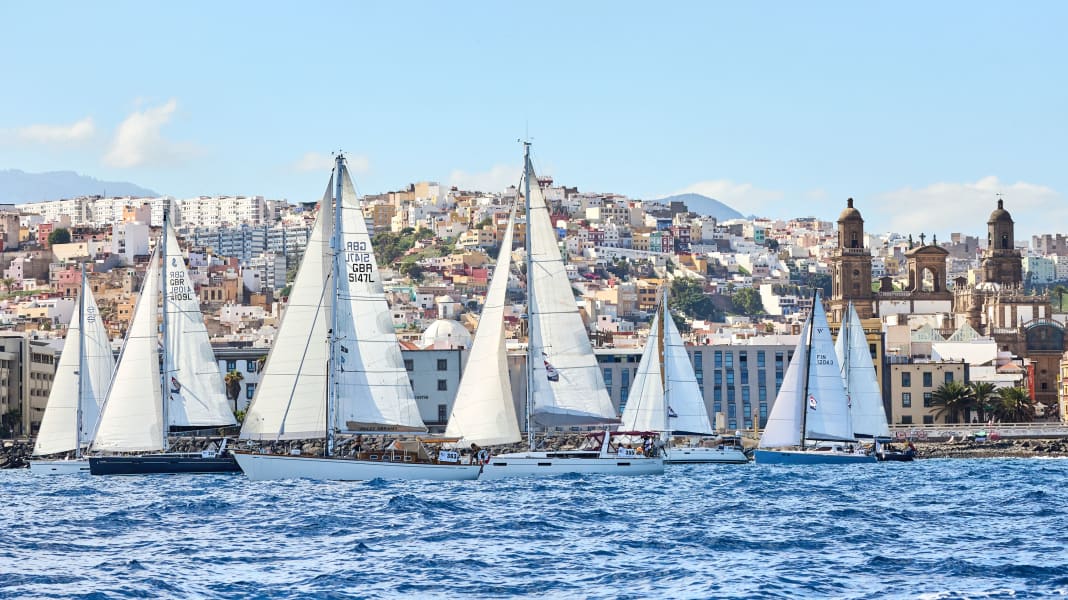
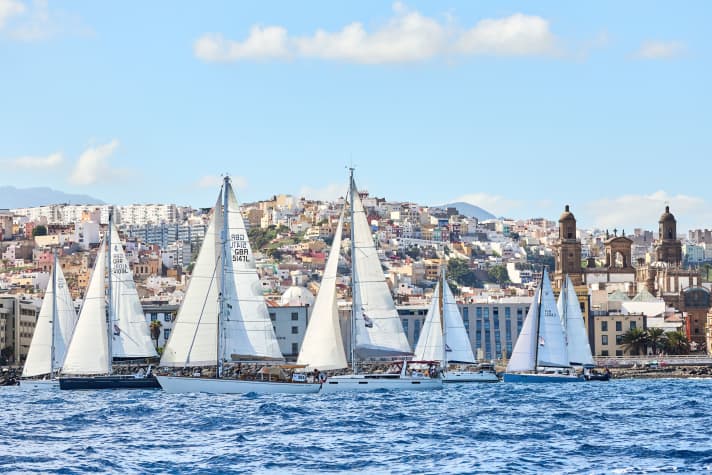
On Sunday, 90 yachts from the ARC Plus blue water rally set off from Las Palmas on the 865 nautical mile leg to Mindelo on the Cape Verde island of São Vicente. After two weeks of preparation, the 400 or so sailors are opening the transatlantic season of the British World Cruising Club's rallies.
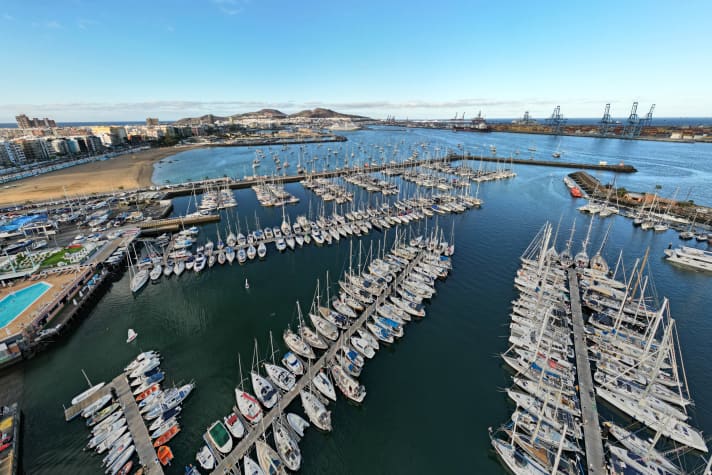
Unlike the Atlantic Rally for Cruisers (ARC), which starts on 20 November, the "ARC Plus" splits the leap across the pond into two stages. This makes the cruise particularly popular with family crews, but also with all those who want to take a more leisurely approach to their journey. Charter skippers and their guests are rarely to be found on the way to Mindelo. Those who simply want to tick the "Atlantic crossing" box on their personal bucket list are more likely to choose the route without a stopover.
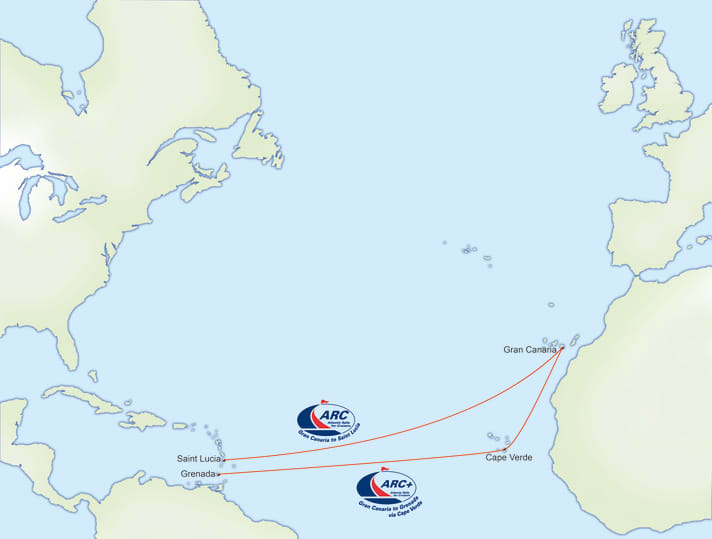
The ARC Plus is taking place for the tenth time this year. During the stopover of several days in the archipelago off the coast of Africa, a shore programme is organised for the crews, and moorings are reserved for the participants, as in Gran Canaria and in the destination port of Grenada. It is precisely this organisation that is a decisive reason for many to join the fleet.
"The balance of safety and community" was the motivation for Nicola Stamp and her partner to embark on the voyage together with others. The couple from southern England have been planning the Atlantic crossing for three years. They meticulously prepared their Hanse 370 from 2008 for the big trip. But something always came up - now they are finally on their way.
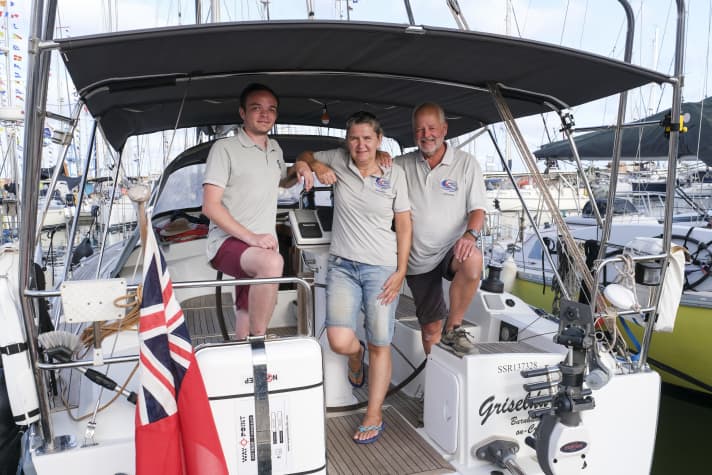
Michael von Pilar, who already crossed the Atlantic on his Gib Sea 126 in 2016, decided in favour of the convoy trip "because it's just fun". The shared excitement of the big day, the socialising on the jetties, the crew parties in the eternal Canarian summer - all of this has become the hallmark of the event and for many the reason for taking part in the first place.
Due to the pandemic, however, social interaction has been severely curtailed over the past two years. Crew dinners, parties, seminars - much to the disappointment of the crews had to be cancelled from the event schedule. Instead, masks were compulsory at check-in and mandatory PCR tests were carried out before setting sail - including trepidation as to whether the virus would shatter the long-cherished dream.
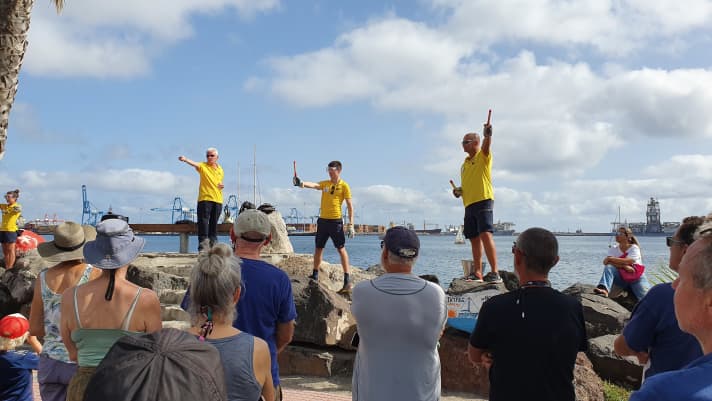
But this year's ARC feels a lot like it did before corona. The seminars on various blue water topics have returned to the tight preparation programme as face-to-face events, and the masks have disappeared from the jetties. According to the organisers, it is now up to the skipper to decide whether a crew is tested before the start.
Only yachts that pass the organisers' safety check will be allowed to sail in the rally. During the pandemic, these were carried out as a video conference before the boats arrived in the Canary Islands - a novelty that is to be maintained in addition to the on-site check. Skippers can now receive virtual advice long before they reach Gran Canaria.
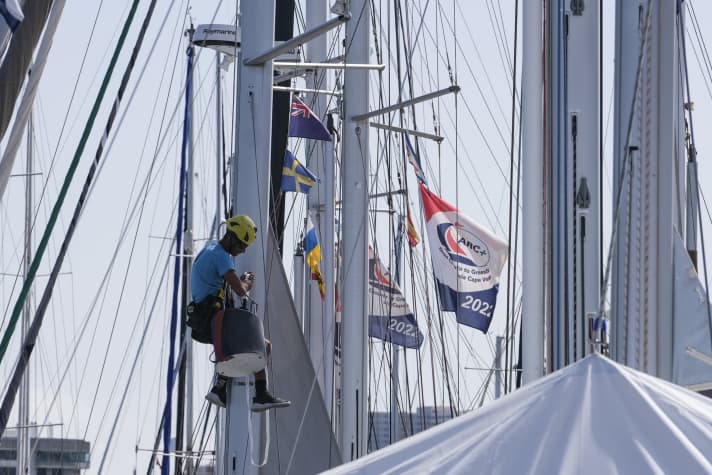
The issue of safety is another reason for quite a few people to join the ARC. It is simply a good feeling to know that someone is following the fleet on the tracker. And the sailors argue that other boats are not too far away in the event of an emergency at sea.
For Pia Toth and Bernhard Schneider from Vienna, there was another aspect: "Taking part in the ARC has given our families some peace of mind," says Toth two days before the start. The 32-year-old and her boyfriend are taking a year off to fulfil their dream of sailing the Atlantic on their own keel. They bought their ageing Sunbeam 40 in the Mediterranean, prepared it and then transferred it to Gran Canaria - where the refit continued. There was a lot to do on their "Melee" until the very end. For example, the standing rigging had to be replaced at short notice for the insurance. A final appointment with the electrician lasted until dark, and the compass was calibrated the day before departure.
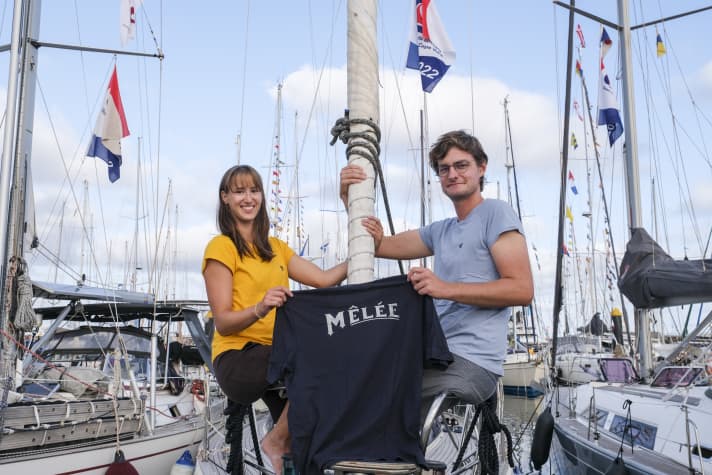
Working towards the departure date was therefore a little stressful. "But it's also good that this date exists. Otherwise we might still be here in a week or two," says Pia Toth with a smile.
Even on the "Malouine", a Moody 41 with a German flag at the stern, not all the items on the to-do list have been completed on the evening before the start. But the crew on board is young and determined to set sail the next morning. After all, skipper Ronja Dörnfeld from Berlin wants to sail around the world once. In the early summer of 2022, the 25-year-old bachelor's student left her home port in the Baltic Sea to sail to the Canary Islands with various co-sailors and sometimes alone. From there, she plans to really get going.
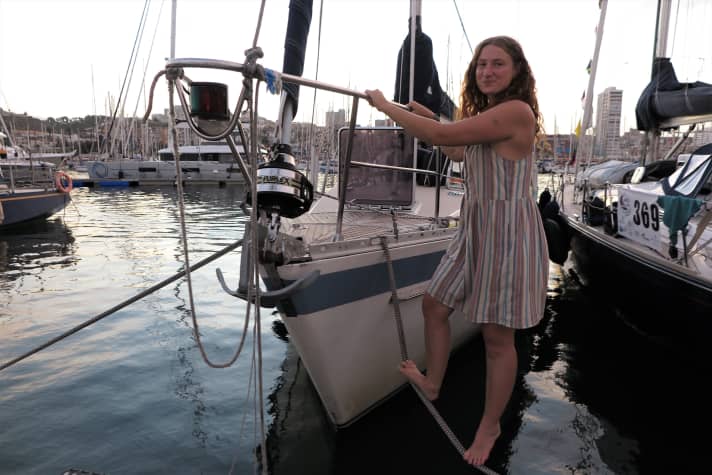
The "Malouine" stands out not only because of the young crew on board. At 41 feet, the ship is now one of the smaller ones in the ARC field. The average boat size this year is 14.50 metres in length. Quite a few yachts with 60 feet or more and a professional crew on board are pushing the limit ever higher. Nicola Stamp's Hanse 370 is one of the smallest boats on the start list. Only 14 yachts, i.e. around 15 per cent of the fleet, are less than twelve metres long.
More and more catamarans are also being built. There are 21 multihulls this year, including seven new ships that have only recently left the shipyard.
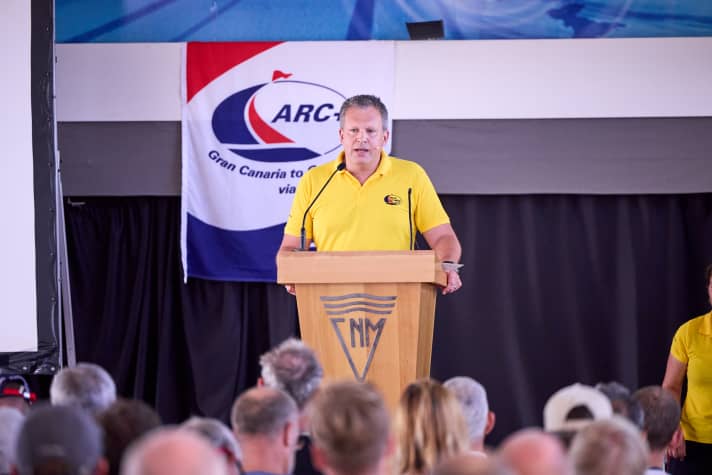
The start of the ARC Plus is also a kind of bed change for the blue water sailors in Las Palmas de Gran Canaria. As soon as the ARC Plus fleet has cast off, the yachts for the next Transat start in a fortnight' time will arrive - then without stopping in Cape Verde. The yachts that have now started are expected there between 11 and 13 November. They will then cast off from Mindelo on 18 November for the long voyage to the Caribbean. If you want to join them virtually, you can do so conveniently in the Online tracking.
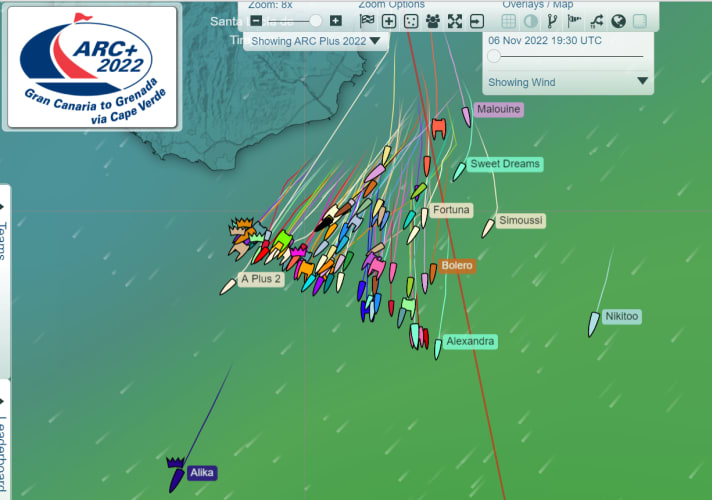
More on the topic:
A report on the boats of this year's ARC Plus and their equipment as well as an interview with Ronja Dörnfeld about her planned circumnavigation will be published shortly in YACHT.

